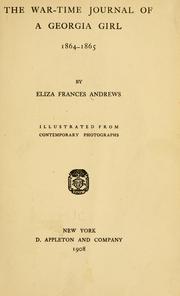

Yet, in spite of the dangers and difficulties that beset this course, his pride and faith in the future of the great republic his father had fought for, were so great, that if forced to choose, he would have preferred emancipation, under proper safeguards, rather than disruption of the Union.īut while he believed that peaceable and gradual emancipation would have been a lesser evil than disunion, he was bitterly and unalterably opposed to negro suffrage, and regarded it as the greatest of all the evils brought upon us by the war. We were in the position of the man who had the bull by the horns and couldn't let loose if he wanted to, for fear of being gored. He was a large slaveholder himself, and honestly believed, like most of his class, that a condition of mild servitude secured by strict regulations against abuses, was the best solution of the “negro problem” bequeathed us by our ancestors. I think, too, his common sense told him that slavery was bound to go, sooner or later, and ifĮmancipation must come, it would be better that it should take place peacefully and by carefully prearranged steps than with the violence and unreason which he foresaw were sure to follow in case of war.


His judgment told him that secession must inevitably be a failure, in any case.Įven could we have held our own in the face of the overwhelming odds against us, and established our independence, he believed that the disintegrating forces of inter-state jealousies and the intrigues of self-seeking politicians would soon have dissolved the bonds of a loosely-organized confederation, based on the right of secession, and left us in the end, broken and divided, at the mercy of our powerful centralized neighbor. The question with him was not whether these ought to be preserved, but by what means their safety could best be assured. No man was ever in more hearty accord with our civilization and institutions than he. It is due to my father's memory, however, to say that his devotion to the Union was not owing to any want of sympathy with his own section, but to his belief that the interests of the South would be best served by remaining under the old flag. Foreshadowings of the race problem (June 1-July 16, 1865).Įxplanatory note.-I would gladly have left out the family dissensions about politics with which this and the preceding chapter abound, could it have been done consistently with faithfulness to the original narrative which I have sought to maintain in giving to the public this contemporary record of the war time.


 0 kommentar(er)
0 kommentar(er)
